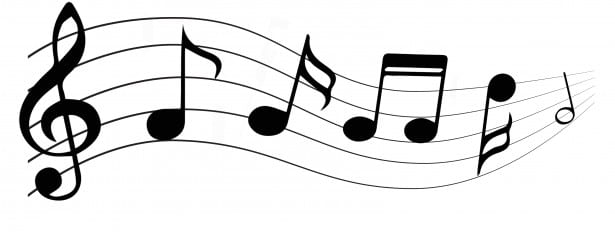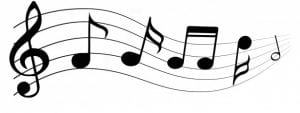Music is an exciting discipline to study. There are many courses out there, whether it’s a traditional degree focussing on performance, composition and theory at a university or conservatoire, or a more specialised professional course such as sound and production, music business or music journalism – you will need to write a personal statement evidencing your subject knowledge, inspiration, skills and ability as part of your application.
A lot of your subject knowledge will easily come from describing what you have learned as part of your A Level or BTEC course. For traditional Music degree courses, you will also need to show that you have reached either a grade 7 or 8 (depending on the institution) in playing a musical instrument. However, some of you may be feeling a bit lost about what else to include in your personal statement, so here are some additional ideas and activities that you may wish to consider in order to boost it further.

Updating your knowledge by learning online
Every university is different, so when it comes to researching your degree courses, check with each individual university website to see if there are any tips on what the admissions tutor wants to see in your personal statement. If this information is not readily available, check the course content to see what you are likely to learn as part of your degree each year. You will notice that there are compulsory modules and elective modules, the latter are the modules you choose to study, usually from your second year. You will probably find that you are familiar with some modules and less so with others. Therefore, for subjects that are new to you, have a look for some free online lectures or MOOCs (Massive Open Online Courses) in order to get a head start. For some practical music lectures, try FutureLearn, which covers short courses in understanding musical scores and making music with others plus much more. Open Culture also offers online lectures in topics such as jazz and culture, improvisation, pitch and tonal systems. For an introduction to classical music, try Coursera and for more traditional and historical music lectures, check out Gresham College’s pre-recorded lectures where you can learn about Schubert’s Fantasy in F Minor and medieval music amongst many others.
There are also some free resources and apps available for music production during lockdown through the ICMP. Click here for further information. Additionally check out Noteflight, where you can compose your own music and to improve your knowledge of music theory, try the online Music Theory Academy.
Community Activities
If you’re looking for other ways to gain extra-curricular skills in music, check out what’s happening in your local community or youth organisations. Have a look for some activities available through the Young Urban Arts Foundation which has some forthcoming events in song-writing, rap, vocal training and a DJ masterclass. There are also events via Youth Music, and Wired for Music. You can also try searching for volunteering roles related to music through the London Assembly, Vinspired and when the situation becomes more safer, try volunteering for hospital radio. If you find accessing opportunities through these channels a challenge, then try your own networks such as your school. For example, ask a music teacher if you can volunteer as a classroom assistant to help younger learners or is there a care home in your local area that may benefit from your musical talents?
Extra reading and research
You may already read specific publications or blogs on a music genre that appeals to you, follow musical websites or read industry-specific magazines, but if you’re not doing any of these things, start researching publications now and learn about other music styles too. To keep up-to-date with current trends in the music business, read the Complete Music Update and if Music Production is more your bag, have a read of Sound On Sound Magazine. Fancy learning about music from different cultures from reggae to folk music? Check out a guide to world music here. The BBC also has some fantastic musical resources such as the podcast A History of Music in Fifty Pieces – check out others available too.
Music at your leisure
And finally, music has been a great source of escape for many people during lockdown from free online gigs to choirs performing on Zoom. So for a bit of fun and culture during these unprecedented times, check out live streams of concerts, opera and shows online. Two examples include Visit London which highlights concerts and gigs taking place in the capital and Billboard which gives weekly updates on livestream gigs.
These are only a few ideas to get you started, so do keep an eye out for other opportunities too.
For further advice on your personal statement, email: wpcareersadvice.1@city.ac.uk
*Always be cautious and check any online forum or employer with your teacher or people at home first, as your safety is paramount!



